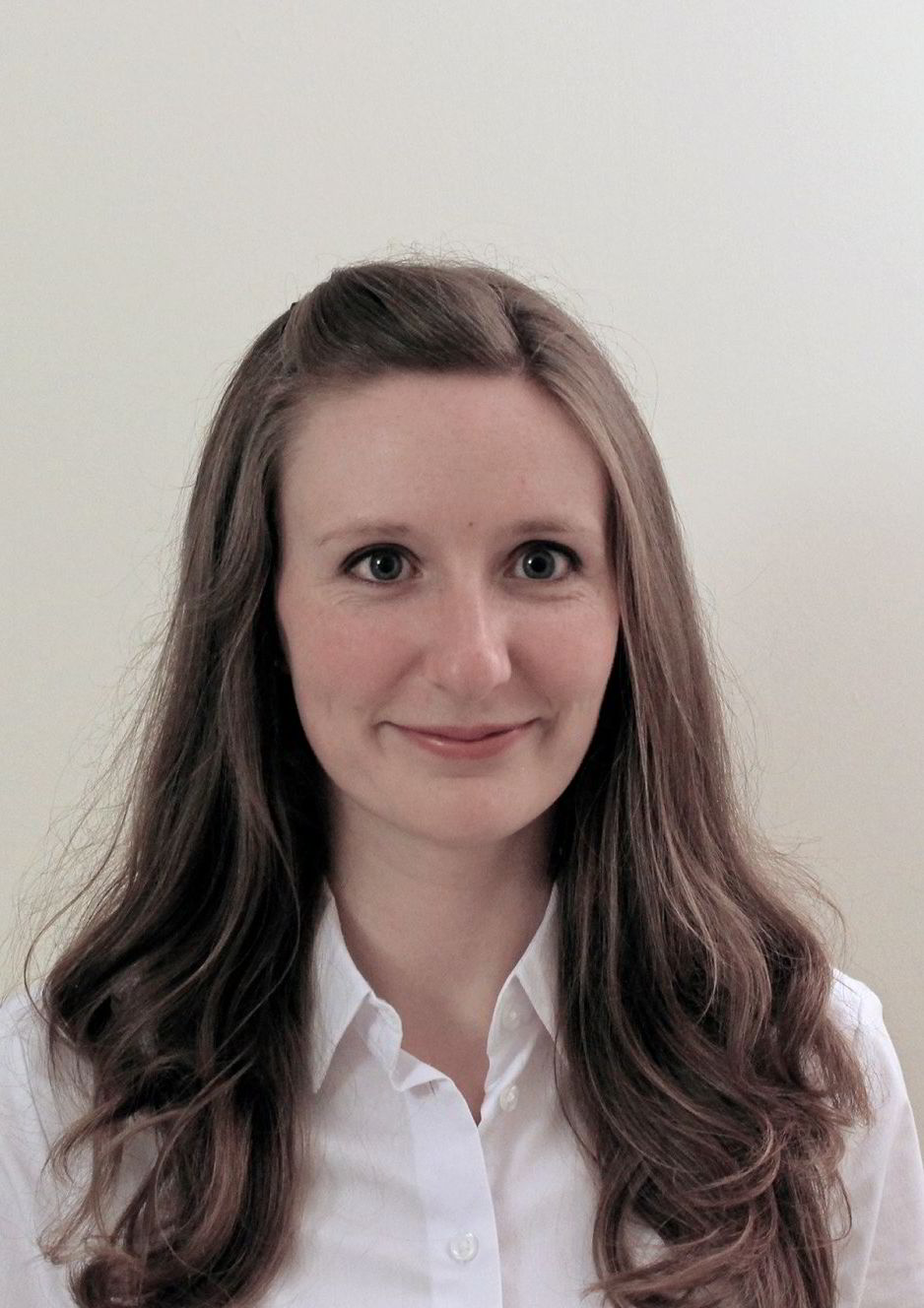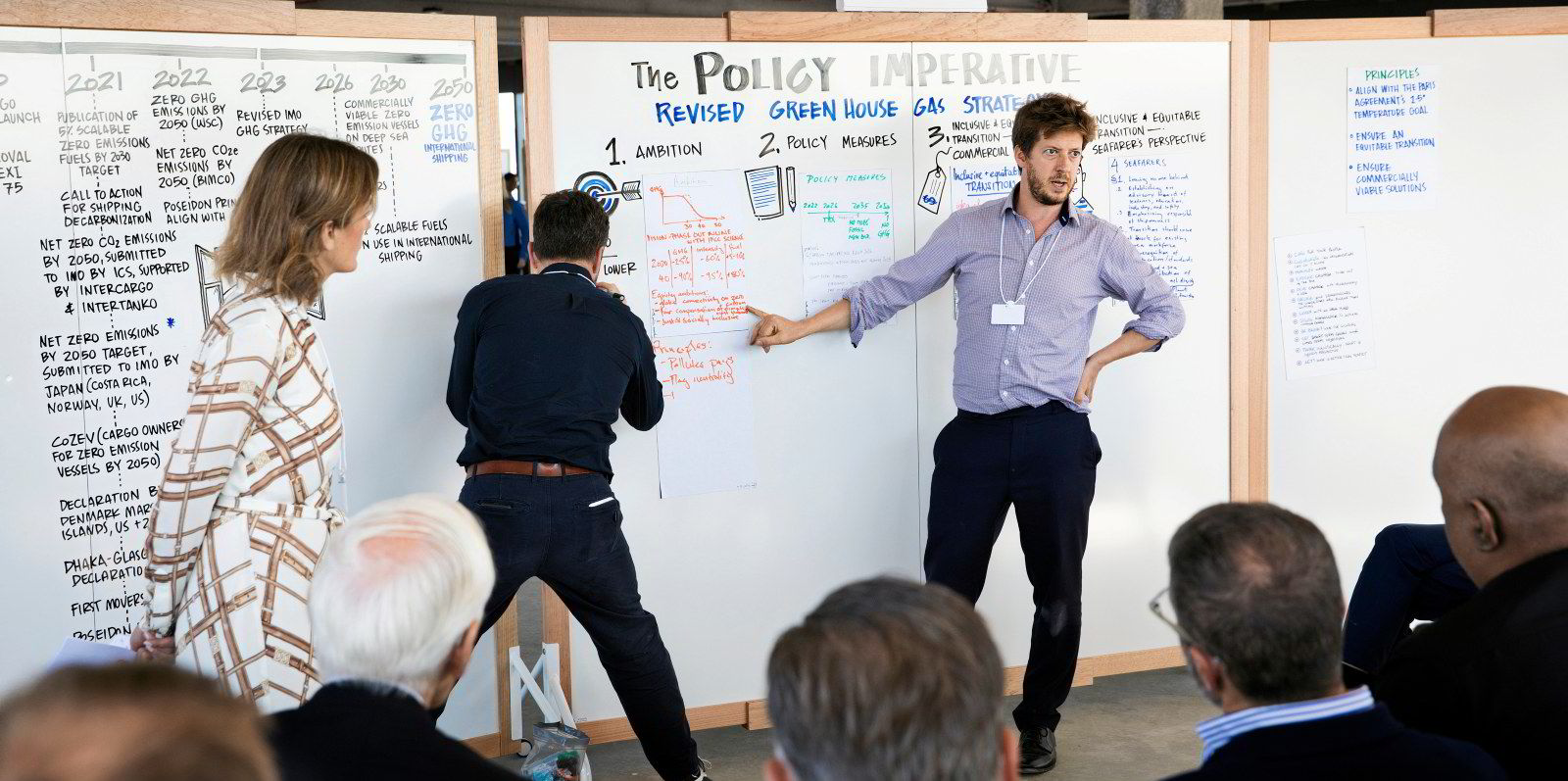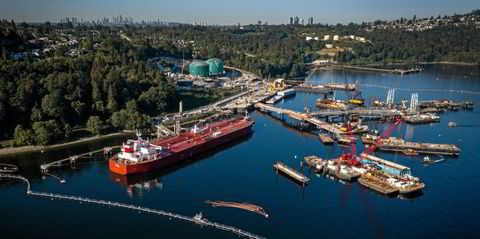The next 18 months marks a crucial period in deciding if the International Maritime Organization can succeed with its drive for cleaner, greener ships.
In a seismic 2023, the IMO emerged as a credible leader of the energy transition after persuading its 175-strong membership to accept a new target of net zero emissions by 2050, but the road ahead remains strewn with obstacles, says Tristan Smith.
That the IMO is now seen as a significant player in the transition is in no small part down to the verdict delivered by Smith and his team at UMAS, the influential London commercial consultancy made up of academics from University College London’s UCL Energy Institute, about the outcome of the summer’s wrangling over emissions.

The IMO was once derided by the European Union and some of its member states as too slow and too conservative to lead the fight against climate change. But its new pathway is a “significant leap forward in ambition” that will end an era of fossil-fuelled shipping, the team concluded in September.
“The thing that emerged this year is the very real credibility of an IMO-led transition,” says Smith, an associate professor in energy and transport at UCL and co-founder of UMAS.
Now comes the tricky bit. What was left unsolved was how the transition would be paid for and how the IMO could bring everyone on board from such diverse economic and political interests ranging from the US and Namibia to China and the Marshall Islands.
“The different political agendas that are going to have to be accommodated within that policy package is very, very broad,” Smith tells TW+.
If the IMO is unable to lead the change, one potential alternative is a patchwork of regional regulation, an outcome the industry is keen to avoid because it brings the risk of increased costs, bureaucracy, uncertainty and inequality.

Wrestling with those tricky concepts has been the work of UMAS, drawing on the expertise of the shipping team at UCL, since it was founded a decade ago.
Smith and his 20-strong group use concepts such as transition theory, charting how societies respond and change to advances in technology, and examine how that would translate to shipping as it adopts new fuels and efficiencies.
The heart of the project is providing the academic underpinnings to strategies that will avoid a chaotic transition driven by a climate change disaster and knee-jerk political response. To an industry with long-term asset planning, that would be “really catastrophic” to shipping and global trade.
That means encouraging regulators to make policy clearly and early and encouraging industry players to think through the implications for their businesses so that they make sound decisions.
“We’d love it if all industry stakeholders voluntarily and altruistically started to do the right thing, but we can see in our own analysis that that would be suicide commercially,” Smith says.
Read more
- Order green ships now. The fuel will come later, report argues
- Green shipping corridors face ‘make or break’ moment
- Green Seas: The era of methanol-fuelled container shipping begins
- Podcast: A ‘loud call’ for taxing shipping’s carbon and a new look at IMO targets
- Green Seas: Sustainability at the forefront as shipping gathers in London




